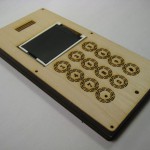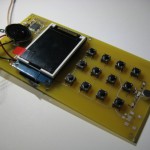
Now owners of Android phones can connect to each other without an internet connection thanks to Serval Mesh app
Serval Mesh, full mesh darknet, quietly released for Android
“You set up your phone, I set up my phone, it connects them directly, so no infrastructure is needed. It can also relay calls, so if you can get a connection to bob and I can get a connection to bob, we can both talk even though we can't get a connection directly to each other.”
Serval Project
“Serval is revolutionary, free, open-source software under development for mobile telephones, letting them communicate even in the absence of phone towers and other supporting infrastructure.”
Serval Android App page
“So with using your existing number, and not requiring Internet Access, our software is making the best of what you have, whether in a disaster or emergency situation, or where poor economies or regional & location restrictions can mean zero infrastructure, we enable communication using just existing mobile phones. Our software is :
Continue reading “Owl: Autonomous Internet First Step – Android Unleashed”








